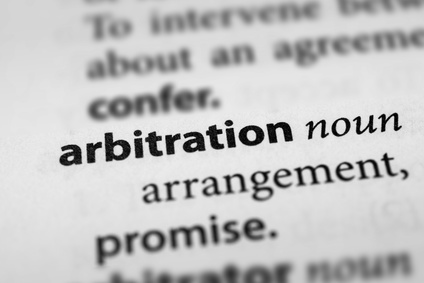The U.S. District Court for the Middle District of Tennessee recently held that a creditor complied with the federal Electronic Funds Transfer Act when it obtained verbal authorization to accept the consumer’s electronic fund transfer and request for enrollment into an autopay system. In so ruling, the Court held that the creditor was not required to send the consumer a copy of his electronic signature (the recording). Instead, the Court held, the written confirmation of enrollment need only include the material terms of the autopay system, and sending the confirmation of enrollment within two business days of the date of…
The U.S. Court of Appeals for the Seventh Circuit recently reversed a trial court’s grant of class certification and remanded the case with instructions to dismiss the case with prejudice because the plaintiffs lacked standing to sue, having shown no injury in fact as required under Spokeo, Inc. v. Robins. A copy of the opinion Eike v. Allergan, Inc. is available at: Link to Opinion. A consumer plaintiff filed a putative class action against six pharmaceutical companies that manufacture eye drops to treat glaucoma. The complaint alleged that they violated the Illinois Consumer Fraud and Deceptive Business Practices Act and…
In an action brought by the Indiana Attorney General against a Florida-based foreclosure defense law firm and its owner-officer, the Supreme Court of Indiana recently held that none of the defendants were expressly or impliedly exempt from liability under four Indiana state consumer protection statutes. A copy of the opinion in Consumer Attorney Services, PA v. State, Ind is available at: Link to Opinion. A foreclosure defense law firm incorporated in Florida and its owner-officer subcontracted with at least five Indiana attorneys to provide local services through “of Counsel,” “associate,” and/or “Partnership” agreements with the law firm — prior to…
The Court of Appeal of California, Second District, recently held the dismissal of a borrower’s breach of contract claim in a prior lawsuit did not bar a claim in a subsequent lawsuit for violation of the federal Truth in Lending Act, 15 U.S.C. § 1601, et seq., even if the breach of contract and TILA claims were based on the same set of underlying facts, because the right to full disclosures under TILA was a distinct primary right from the common law rights in contract. However, although the Appellate Court determined that the dismissal based on the doctrines of res…
The Court of Appeals of Maryland, the state’s highest court, recently held that a debt collector waived its contractual right to arbitrate the claims against it when it chose to litigate the collection action outside of arbitration. The Court also held that a finding of prejudice was not required under Maryland law to find waiver of the right to arbitrate. A copy of the opinion in Cain v. Midland Funding, LLC is available at: Link to Opinion. A consumer opened a credit card account in 2003. The account agreement contained an arbitration provision that permitted either party to elect mandatory,…
Illinois App. Court (1st Dist) Holds Mortgagee’s Affidavit for Alternative Service Fatally Deficient

The Appellate Court of Illinois, First District, recently vacated a default foreclosure judgment in favor of a mortgagee and against a borrower because the mortgagee’s affidavit in support of its motion for alternative service did not establish the required due diligence demonstrating the investigation made to determine the borrower’s whereabouts, and the trial court therefore lacked personal jurisdiction over the borrower. A copy of the opinion in Urban Partnership Bank v. Ragdale is available at: Link to Opinion. A mortgagee initiated a foreclosure action against a borrower based upon a mortgage loan between the parties. The mortgagee was not able…
The U.S. Court of Appeals for the Fifth Circuit recently affirmed a trial court’s denial of a mortgagor’s motion for remand because the non-diverse substitute foreclosure trustee was improperly joined in order to defeat diversity jurisdiction. The Fifth Circuit also affirmed the trial court’s summary judgment ruling in favor of the trustee and loan servicer because the foreclosure sale never took place, and therefore the mortgagor could not state a cause of action for wrongful foreclosure under Texas law. A copy of the opinion in Foster v. Deutsche Bank National Trust Co. is available at: Link to Opinion. The mortgagor…
The U.S. Court of Appeals for the Third Circuit recently held that the calculation of the private mortgage insurance (PMI) automatic termination date under the federal Homeowners Protection Act, 12 U.S.C. § 4901 et seq., for modified loans is tied to the initial purchase price of the home, not the updated property value used for a borrower’s modification. In so ruling, the Third Circuit rejected several arguments set forth by trade group amici, including reliance on Fannie Mae Servicing Guidelines that allow mortgage servicers to use the estimated value of the property used for a loan modification to calculate the…
The Bankruptcy Appellate Panel for the Eighth Circuit recently held that a secured creditor obtained a valid lien on collateral because technical defects in the bill of sale did not invalidate a transfer of title to the collateral, and rejected the argument that the secured creditor should have inspected the bill of sale before advancing funds. A copy of the opinion in In re Leonard is available at: Link to Opinion. This was a dispute over the validity and priority of interest in collateral in goods. The seller sold the collateral to the debtor, a broker who delivered the collateral…
The District Court of Appeal of Florida, First District, recently held that borrowers waive their affirmative defense that a mortgagee did not comply with HUD’s “face-to-face” condition precedent to foreclosure when they fail to raise the defense until their closing argument at trial. The First District also held that even if the borrowers had timely raised compliance with HUD regulations as an affirmative defense, the mortgagee was not required to comply because the property was more than 200 miles from the mortgagee and its servicing branches. A copy of the opinion in Sarah J. Harris and Bradley C. Harris v.…
The District Court of Appeal of the State of Florida, Third District, recently reversed an award of attorney’s fees to a borrower pursuant to section 57.105, Florida Statutes, holding that because the borrower prevailed on her argument that the foreclosing mortgagee lacked standing to enforce the note and mortgage, there was no contract between the parties, and therefore the borrower could not invoke the attorney’s fees reciprocity provision of the statute. A copy of the opinion in The Bank of New York Mellon Trust Company, N.A. v. Fitzgerald is available at: Link to Opinion. The borrower signed a note and…
The U.S. Court of Appeals for the Ninth Circuit recently reversed an award of summary judgment in favor of a mortgage loan servicer, holding that the evidence could support a verdict that the servicer engaged in an unfair business practice by accepting trial modification plan payments when it had previously determined the borrower was not eligible for a loan modification. A copy of the opinion Oskoui v. J.P. Morgan Chase Bank, N.A. is available at: Link to Opinion. A borrower defaulted on her mortgage loan, and later applied for a loan modification. The mortgage loan servicer sent her a letter…











